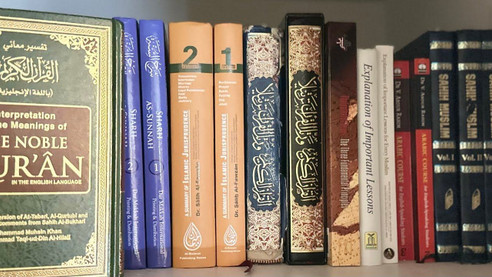The Meaning and Importance of Sadaqah in Islam
Sadaqah, a beautiful concept in Islam, represents voluntary charity given for the sake of Allah and the benefit of others. While Zakat is obligatory, Sadaqah is an act of selfless giving that fosters compassion, empathy, and social unity. From a simple smile to a life-changing donation, Sadaqah embodies the spirit of generosity.
What is Sadaqah?
Sadaqah comes from the Arabic word "sidq," meaning truthfulness. It is a voluntary act of charity performed purely to seek Allah’s pleasure. Unlike Zakat, which is calculated and mandatory, Sadaqah has no fixed amount or conditions. It can be as small as a kind word or as significant as funding a community project.
Types of Sadaqah
Sadaqah takes various forms, making it accessible to everyone regardless of financial status.
1. Material SadaqahThis involves providing tangible help, such as:
- Donating money, food, or clothing.
- Funding community projects like schools or shelters.
2. Non-Material SadaqahThis includes acts of kindness and service, such as:
- Smiling or comforting someone in distress.
- Volunteering time to help others.
- Teaching skills or sharing beneficial knowledge.
3. Sadaqah Jariyah (Continuous Charity)This is a special form of charity that continues to benefit others even after the giver has passed away. Examples include:
- Building wells or providing clean water.
- Planting trees or creating public facilities.
- Funding education or religious learning centers.
Who Can Receive Sadaqah?
One of the most remarkable aspects of Sadaqah is its inclusivity. Unlike Zakat, which has specific categories of recipients, Sadaqah can be given to anyone in need, regardless of their religion or background. It serves as a universal gesture of goodwill and compassion.
Rules for Giving Sadaqah
Although voluntary, Sadaqah has some guidelines to ensure its integrity and impact:
- Give Sincerely: Always give with the intention of pleasing Allah. Avoid showing off or seeking praise.
- From Halal Earnings: Ensure that the charity comes from lawful income.
- Prioritize Family: Help relatives in need before extending support to others.
- Show Respect: Treat recipients with dignity and kindness, avoiding any words or actions that may humiliate them.
Spiritual Benefits of Sadaqah
Sadaqah is not just an act of giving; it is a means of purifying the soul and strengthening one’s connection with Allah.
- Increases Wealth: Contrary to worldly logic, the Prophet Muhammad (PBUH) said, "Charity does not decrease wealth." (Sahih Muslim)
- Protects from Harm: “Give charity without delay, for it stands in the way of calamity.” (Tirmidhi)
- Expunges Sins: Charity purifies the soul, just as water extinguishes fire.
Key Hadiths About Sadaqah
The Prophet Muhammad (PBUH) provided timeless guidance on the virtues of Sadaqah:
- “Every good deed is charity.” (Sahih Bukhari)
- “The best charity is that given in secret to the poor.” (Sahih Bukhari)
- “Treat your sick by giving charity.” (Abu Dawood)
Understanding Sadaqah Jariyah
Sadaqah Jariyah, or continuous charity, ensures that the giver receives ongoing rewards for their generosity. It involves acts that leave a lasting impact, such as constructing wells, mosques, or schools.
The Prophet Muhammad (PBUH) said:“When a man dies, his deeds come to an end except for three things: Sadaqah Jariyah, knowledge which is beneficial, or a virtuous descendant who prays for him.” (Sahih Muslim)
Examples of Sadaqah Jariyah
- Building public infrastructure like wells, schools, or clinics.
- Planting trees that provide shade and sustenance.
- Sponsoring educational programs or distributing Islamic books.
Sadaqah Jariyah is a legacy that outlives the giver, continuously benefiting humanity and earning rewards in the hereafter.
The Essence of Sadaqah
At its core, Sadaqah is a reminder of Islam’s emphasis on generosity, humility, and community welfare. By incorporating Sadaqah into daily life, Muslims can foster kindness, alleviate suffering, and draw closer to Allah. Whether through small gestures or monumental contributions, the act of giving enriches both the giver and the recipient, creating a ripple effect of positivity.
















